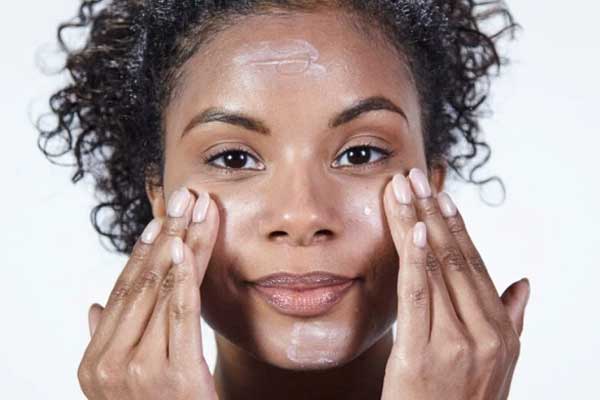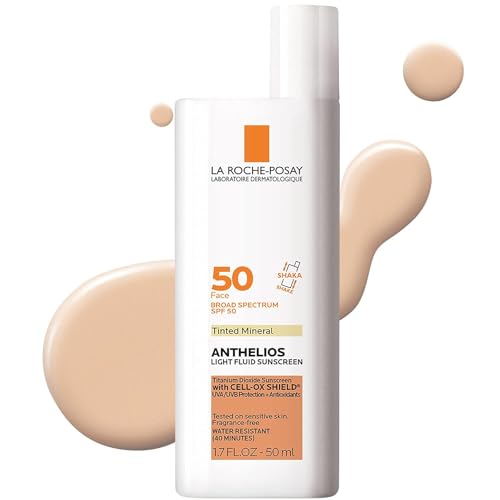For whatever reason, there’s a lot of different ideas around SPF; from whether or not you need it based on your skin tone, to how much you need, to which sunscreens are the best, and even to what it does. So, we asked Dr. Cula MD, PhD and dermatology resident from Cherie community to help us answer some of the most common SPF questions. We hope her expert opinion debunks some common SPF myths and gets our community to do the most important step of skincare: applying SPF every. single. day!
Question 1: It’s cold and the sun is barely out! I don’t need sunscreen, right?
“Wrong! Don’t let the clouds fool you. UV rays can still penetrate them and cause major skin damage. While there are fewer burning rays aka UVB during the winter, the aging rays aka UVA, are potent year-round. In addition, snow and ice can reflect up to 80% of UV rays, so the rays hit you twice. As a consequence, you are getting a significant amount of UV rays even on cloudy days. So, even if you are less likely to get a sunburn during the winter, UVA rays are still present causing premature aging and increasing your risk of skin cancer. Even if you are mostly indoors due to the cold weather, you still should not skip sunscreen. UVA penetrates glass windows and blue light from too much screen time may also damage the skin. So, I recommend sun protection to my patients all day and every day, regardless of the weather or time of the year. ”
More from Glowing Gorgeous: Find out here the Best Silicone-Free Moisturizers And Why Do You Care
Question 2: Does reapplying really even matter?
“Depends. Generally, sunscreen should be reapplied every 2 hours, with sun exposure to compensate for initial under application so as to achieve an SPF more in line with the rated value and to replace sunscreen that may have been removed by water, vigorous toweling, or friction with clothing or sand. So with active sun exposure, reapplying is strongly recommended to help prevent the harmful effects of the sun. However, If you work indoors and sit away from windows you often do not need a second application. In any case for midday touchups there are many loose powder sunscreen formulation that makes reapplication very convenient.”
Question 3: I have an SPF 15 in my foundation, so I don’t need a regular sunscreen, right?
“SPF makeup is not a substitute for a standalone sunscreen. First, most SPF makeup only protects against the burning rays (UVB), leaving your skin vulnerable to the aging rays (UVA). Second, there is no way you are putting on enough sunscreen to achieve the rated SPF. A teaspoon of sunscreen is usually recommended for your face to achieve the rated SPF. I recommend using a physical blocker sunscreen SPF 30 and letting it absorb into your skin for a few minutes before doing your makeup over it.”
Question 4: The sun heals acne, doesn’t it?
“No. In fact, the sun actually aggravates acne. The sun dries out the skin which eventually leads to increase sebum production. Increase sebum production, in acne-prone skin, often translate to more breakout. ”
Question 5: I don’t see a difference in my skin wearing SPF! What is it supposed to do?
“Sunscreen protects from the harmful effect of the sun such as sunburn and premature aging (i.e wrinkles, sunspots). In so doing, it decreases your risk of getting skin cancer over time. With daily sunscreen use, you are slowing down the development of wrinkles, keeping younger. In addition, daily sunscreen uses helps maintain an overall even skin tone by preventing the development of sunspots as well as preventing the development/worsening of skin discoloration. The caveat is that the effects of routine sun protection are cumulative and are not immediately evident. Patience is key as nothing looks as good in your 50s as sunscreen in your 20s. So, trust the process.”
Question 6: Ok, I’m convinced to get an SPF! But what’s the difference between mineral and chemical sunscreens?
Chemical sunscreens are organic because they contain carbon-based compounds. They are absorbing because they absorb UV rays and then neutralize them, releasing heat. There is an increased change of irritation and stinging due to the combination of multiple ingredients in order to provide both UVA and UVB protection.
Physical sunscreens are inorganic because they contain active mineral ingredients (Zinc oxide and/or titanium dioxide). They are reflecting because they form a shield over your skin following application, reflecting sun rays. They are naturally broad spectrum, thus blocks against both UVA and UVB. Compared to chemical sunscreen, they often leave a white cast. However, now with improved formulation, there are a lot more options for skin of color.
Dr. Cula’s Top SPF Picks
Overall best SPF – Colorescience Sunforgettable Total Protection Face Shield
- SPF 50 PA ++++
- Zinc Oxide 12%
- Water/sweat Resistant (40 minutes)
- All mineral protection, in a hydrating liquid formula
- Dewy, luminous finish with a pearlescvent glow.
SPF for melanated skin – ISDIN Eryfotona Ageless Ultralight tinted mineral sunscreen
- YOUR SOLUTION FOR: protecting the skin from the sun’s harmful rays and reducing the risk of sun damage.
- TESTED: Sun skin care that does not clog pores, versatile tint provides the perfect finish and evens skin tone, can be used under makeup.
- TECHNOLOGY: Photoaging defense by boosting the skin’s natural antioxidant defenses with vitamin E.
- DEVELOPED IN: Spain
SPF for acne-prone skin – EltaMD UV Clear SPF 46 moisturizing sunscreen
- EltaMD UV Clear Face Sunscreen is a lightweight oil free sunscreen made with Zinc Oxide that leaves no white cast after applying and helps block damaging UVA and UVB rays from the sun
- Dermatologist recommended face sunscreen for acne prone skin helps protect against breakouts and is an essential acne sunscreen for those with acne prone skin care concerns and other sensitive skin types like rosacea and hyperpigmentation
- This face sunscreen for sensitive skin contains Zinc Oxide, Niacinamide, Hyaluronic Acid and an antioxidant to promote the appearance of healthy-looking skin and reduce skin dryness and redness
- Small 1.7 oz pump bottle make this the perfect travel size sunscreen when you need a lightweight daily face sunscreen to bring on the go to protect your skin from the sun
- EltaMD UV Clear is a non greasy sunscreen for oily skin that can be worn alone or under makeup and is fragrance-free, paraben-free, and noncomedogenic
SPF for dry skin – Supergoop Superscreen Daily Moisturizer SPF 40
- DOES-IT-ALL DAILY MOISTURIZER - Supergoop! Superscreen is a hydrating daily moisturizer & SPF 40 sunscreen in one, protecting your skin from UVA rays, UVB rays & infrared radiation, plus helping to filter blue light & pollution.
- LIGHTWEIGHT TEXTURE - This lightweight, easy-to-absorb moisturizing cream has a bouncy texture that melts into the skin and leaves it feeling soft, smooth and hydrated.
- PROTECTIVE INGREDIENTS - Our formula features a naturally occurring combination of moisturizers, antioxidants and skin repairing actives harvested from blue-green algae.
- RESTORE & IMPROVE SKIN - Oxybenzone and octinoxate-free, Superscreen absorbs easily and is perfect for any skin type or tone in need of a moisture boost!
- HOW TO APPLY - Apply generously and evenly as the last step in your skincare routine and 15 minutes before sun exposure. Superscreen works beautifully under primer and makeup, or can be worn completely on its own.


 Colorescience Sunforgettable Total Protection Face Shield Glow SPF 50, Glow, 1.8...
Colorescience Sunforgettable Total Protection Face Shield Glow SPF 50, Glow, 1.8... Eryfotona Ageless Sunscreen Zinc Oxide and 100% Mineral Tinted Sunscreen SPF...
Eryfotona Ageless Sunscreen Zinc Oxide and 100% Mineral Tinted Sunscreen SPF... EltaMD UV Clear Face Sunscreen, SPF 46 Oil Free Sunscreen with Zinc Oxide,...
EltaMD UV Clear Face Sunscreen, SPF 46 Oil Free Sunscreen with Zinc Oxide,... Supergoop! Superscreen - 1.7 fl oz - SPF 40 PA+++ Hydrating Daily Moisturizer...
Supergoop! Superscreen - 1.7 fl oz - SPF 40 PA+++ Hydrating Daily Moisturizer...
 La Roche-Posay Anthelios Melt-In Milk Body & Face Sunscreen SPF 60, Oil Free...
La Roche-Posay Anthelios Melt-In Milk Body & Face Sunscreen SPF 60, Oil Free... La Roche-Posay Anthelios Tinted Sunscreen SPF 50, Ultra-Light Fluid Broad...
La Roche-Posay Anthelios Tinted Sunscreen SPF 50, Ultra-Light Fluid Broad... innisfree Daily UV Defense Sunscreen Broad Spectrum SPF 36 Face Lotion, 1.69 Fl...
innisfree Daily UV Defense Sunscreen Broad Spectrum SPF 36 Face Lotion, 1.69 Fl...
Comments